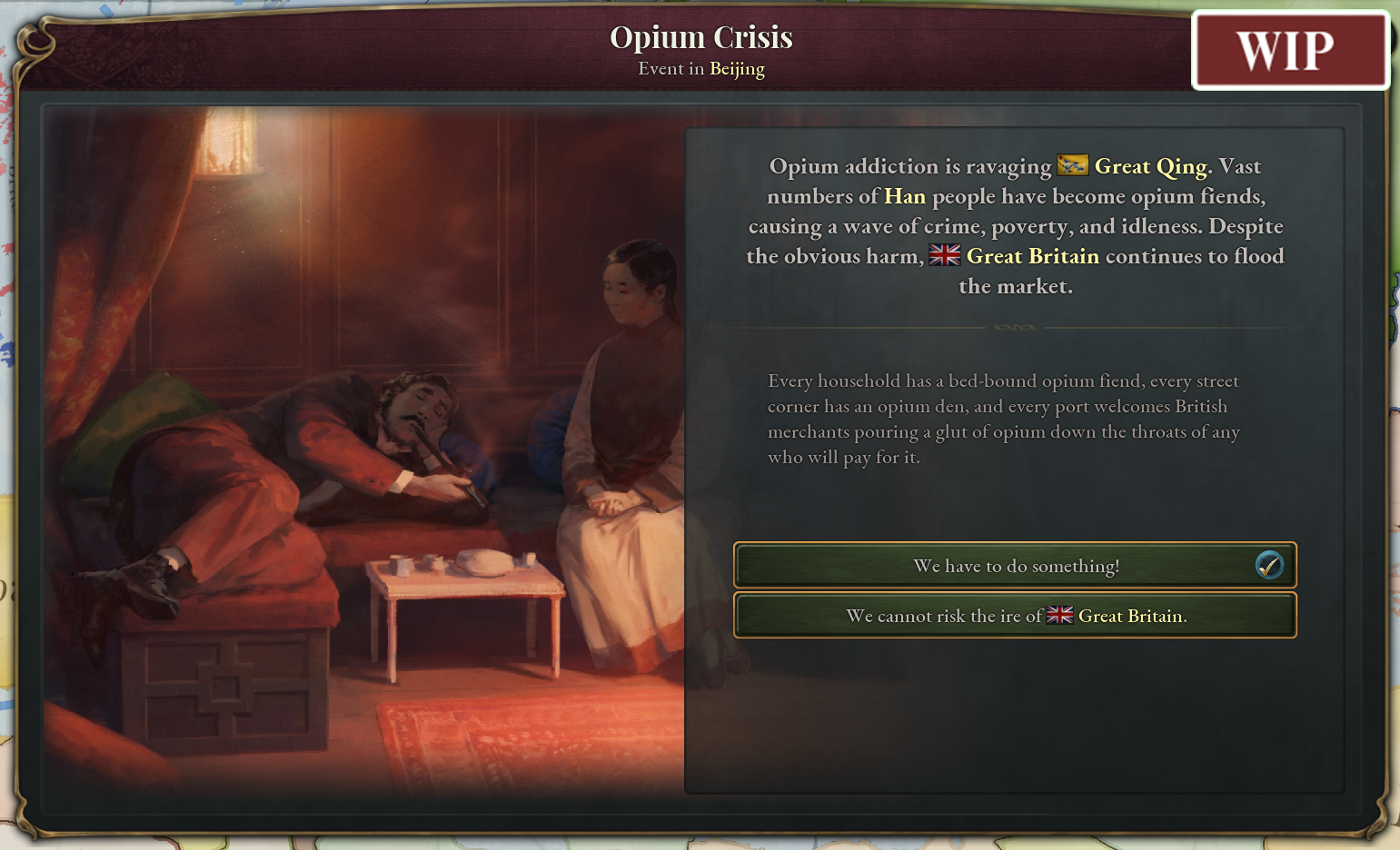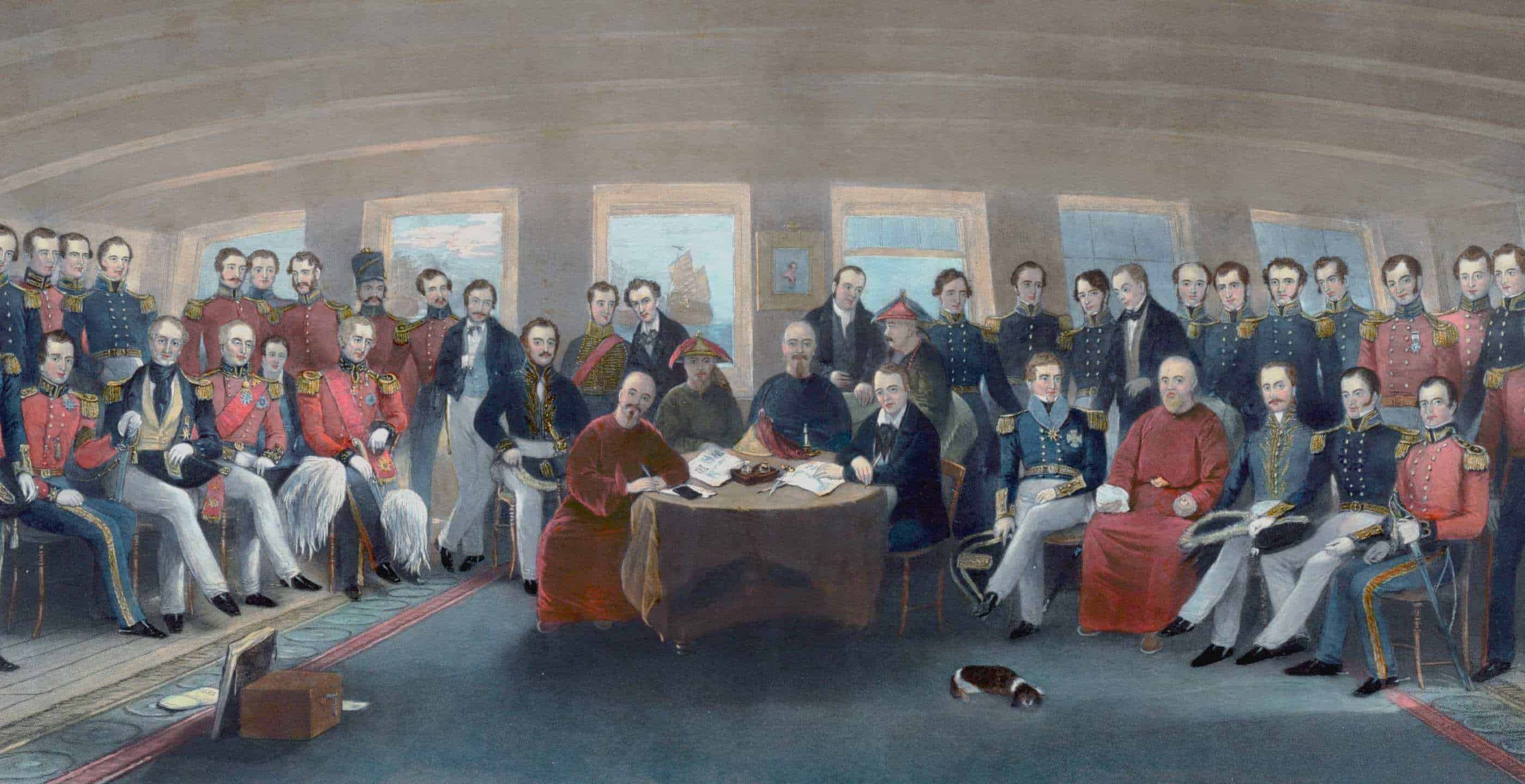What Was an Immediate Result of the Opium War
In the first skirmish alone in july 1839 two british warships defeated twenty-nine chinese ships. In light of the British addiction to Chinese exports silk ceramics and tea opium was the only commodity that saved the British balance of payments with Asia from ruinous.
The opium trade continued and China had to compensate Great Britain for its losses give Hong Kong Island to the British and increase the number of treaty ports where the British could trade and reside.

. In conclusion of the first Opium War China surrendered to the British in 1841 and then reluctantly signed the Treaty of Nanking the following year which officially ended the first Opium War1The treaty assured the Westerners that trade would be granted and there would be no problem in access. The effects of the opium wars were not only immediate but had a lasting effect on the world. What was an immediate result of the Opium War described in this passage.
The result of the First Opium War was that things very much returned to the status quo. The first began in 1839 and lasted until 1842 and the second began in 1856 and ended in 1860. This conflict was the immediate result of the attempt of the Chinese Government to prevent the importation of opium.
Beginning the Boxer Rebellion. The Second Opium War was fought from October 23 1856 to October 18 1860. Britain kept smuggling opium into China illegally the Chinese kept smoking it and China continued sending tea to the UK.
This series has seven easy 5 minute installments. The overall result of these conflicts was to weaken the Chinese imperial system and greatly expand Western influence in China. The First Opium War was fought from March 18 1839 to August 29 1842 and was also known as the First Anglo-Chinese War.
This also led to increased Christian missionary work and legalization of the opium trade. Signing the Treaty of Nanking Which geographic characteristic of Japan most influenced its decision to engage in imperialism in the early to mid-20th century. CausesBritish aggression and expansionalism.
The Opium War of 1839-42 was short and one-sided due to the superiority of European weapons which came as a complete surprise to the Chinese. On this the people of China broke off their trade relations with Britain and an atmosphere of war began to build up between the two countries ie China and England. List of some of the major causes and effects of the Opium Wars two trading wars that erupted during the mid-19th century in China.
As a result of the war Britain won trade rights access to five treaty ports and Hong Kong. 1 signing the Treaty of Nanking 2 forming the Guomindang 3 beginning the Boxer Rebellion 4 organizing the Taiping Rebellion. The Opium War It is the name of the war between China and Great Britain that took place between 1839 and 1860.
In order to balance this flow of silver they bring in opium into China as well. The collapse of the one mighty Ming and Qing dynasties in China came as the result of pressure from European trade and wars over opium as well as a succession of weak rulers. In the first skirmish alone in July 1839 two British warships defeated twenty-nine Chinese ships.
At the end of the war Great Britain had won her object of opening China to general English trade and to the opium. In the first skirmish alone in July 1839 two British warships defeated twenty-nine Chinese ships. The Opium War of 183942 was short and one-sided due to the superiority of European weapons which came as a complete surprise to the Chinese.
69 British troops and approximately 18000 Chinese soldiers perished. What was an immediate result of the Opium War described in this passage. Opium War of 1840.
Britain saw this as an opportunity and used opium. On land the chinese and their medieval weapons were no match for british. Immediate cause and primary catalyst of the First Opium War from a greater historical distance it appears that the war was largely the result of an attitude collision.
This relationship was tenuous at best however and it would not be long before the issue escalated once again. John Wongs 1998 study of Britains second Opium War with China Deadly Dreams made clear Lord Palmerstons dependency on opium revenues throughout the middle decades of the 19th century. The First Opium War both reflected and contributed to a further weakening of the Chinese states power and legitimacy.
Great Britain won the first Opium War. It was actually two different wars. The Opium War of 1839-42 was short and one-sided due to the superiority of European weapons which came as a complete surprise to the Chinese.
In the first skirmish alone in July 1839 two British warships defeated twenty-nine Chinese ships. Background Causes and Consequences. Signing the Treaty of Nanking.
This war is also known as the first opium war in history. On the one hand the cavalier indifference of British. As a result thereof on 3rd November 1839 two British fleets compelled the Chinese ships to sail away.
Anti-Qing sentiment grew in the form of rebellions such as the Taiping Rebellion a war lasting from 185064 in which at least 20 million Chinese died. What was an immediate result of the Opium War described in this passage. Western nations begin to undergo an outflow of silver into China.
- Opium became the most valuable commodity trade in the 19th century and financed much of Britains colonization of IndiaAmount of drug addicts. In this France also participated in supporting the British. The opium war of 183942 was short and one-sided due to the superiority of european weapons which came as a complete surprise to the chinese.
Second Opium War 18561860 In 1856 a second Opium War broke out and continued until 1860 when the British and French captured Beijing and forced on China a new round of unequal treaties indemnities and the opening of 11 more treaty ports see Map 3. The decline of the Qing dynasty was beginning to be felt by much of the Chinese population. Organizing the Taiping Rebellion.
As China did not have a circulating currency they used silver which they got from Central America.



Comments
Post a Comment